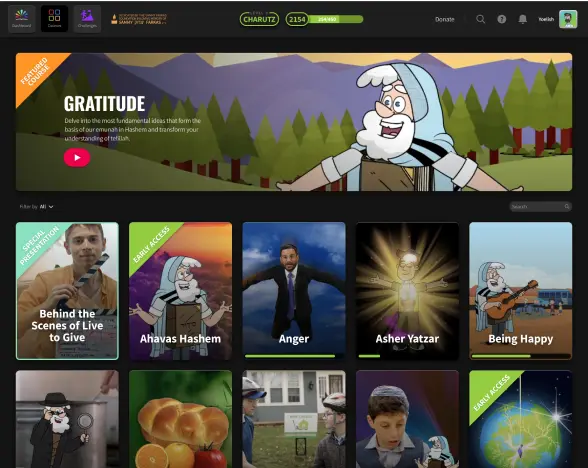Judging Others Favorably: Unlocking the Gift of a Good Eye
Have You Ever Jumped to Conclusions?
You're waiting in line at the grocery store, and suddenly someone cuts in front of you without a word. Annoyed, you start creating a story in your head — maybe they're just rude, or think their time is more valuable than yours. But have you ever been in a rush yourself, desperately trying to make it somewhere and hoping others would understand? Our snap judgments often say more about us than the person we're judging.
Jewish Wisdom Meets Modern Psychology
Sociologists and psychologists alike confirm it: the way we interpret others’ actions hugely shapes not only our relationships, but our personal happiness. Negative assumptions breed upset and distance, while positive, generous interpretations invite connection and peace. Centuries before this was verified in studies, Pirkei Avot (Ethics of Our Fathers) implored us: “Judge every person favorably.” This is the Jewish art of dan l'kaf zechus—giving the benefit of the doubt—not because people never err, but because we never truly see the whole picture.
Why Is It So Hard?
Think back to a time when you misunderstood someone's behavior, only to learn later there was an explanation you hadn't considered. Psychology calls this the 'fundamental attribution error': we blame others for their actions, but make excuses for our own. Jewish tradition gives us tools to rise above this knee-jerk reaction, reminding us, as Pirkei Avot teaches, “Do not judge your fellow until you have reached their place.” We rarely know another person’s challenges or burdens. If you’ve ever been on the receiving end of unfair judgment, you know how hurtful it can be—and how liberating it feels when someone gives you the benefit of the doubt.
The Ripple Effect: One Positive Judgment Can Change a Day
Consider the story of Daniel and Aaron from Torah Live: Daniel grows frustrated with classmate Aaron’s repeated lateness, assuming he’s careless. Later, Daniel discovers that Aaron’s helping care for a sick sibling each morning. Instantly, Daniel’s perspective—and his feelings—shift. This isn’t just a nice story; it’s a real-life pattern. Research shows that positive social assumptions can improve group morale, boost cooperation, and even lower stress. As Judaism and science align, we see: choosing to judge favorably is an act of kindness that echoes far beyond one interaction.
Four Practical Ways to Judge Favorably—Starting Today
- Flip the Script: When you notice annoyance rising, pause and invent three possible ‘good reasons’ for someone’s behavior. Even if you’ll never know the real cause, this changes your outlook and softens your heart.
- Recall Your Own Excuses: Notice how easy it is to explain your own missteps. The next time someone frustrates you, try applying the same grace you give yourself.
- Remind Yourself: You Never Know the Full Story: When feeling wronged, repeat the words from Pirkei Avot—“Do not judge your fellow until you have reached their place.” This small phrase can interrupt harsh thinking and open you to empathy.
- Practice with Strangers: The next time someone cuts you off in traffic or forgets to return your text, treat it as a “workout” for your spiritual muscles. With practice, it becomes easier (and life feels lighter!).
Flowing into Everyday Greatness
Judging others favorably isn’t about being naive or ignoring poor behavior. It’s about granting the same understanding you hope to receive, trusting that everyone has battles we can’t see. And, just as the Sages teach, the kindness you show rebounds—building better relationships, a calmer heart, and a more peaceful world.
Ready to Spread Good Eye Energy?
Imagine a world where every frown is met with empathy, and every mistake with understanding. It can start with you—today. And if you'd love more practical wisdom and uplifting stories like this, join the Torah Live community! Sign up now for free videos, games, and challenges that are 100% clean, 100% fun, and designed for growth: TorahLive.com/signup
